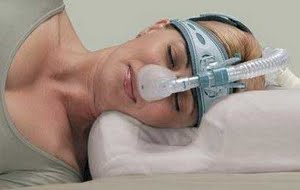If you suffer from sleep apnea your doctor may have told you about a continuous positive airway pressure machine, or CPAP. A CPAP basically forces a continuous stream of air in the throat and lungs, which prevents obstructions which cause sleep apnea. CPAP machines require the use of a face mask to keep the air flowing consistently. Many people who either have a CPAP or are getting one may have some questions and concerns about using one. Keep reading to learn more about what a CPAP can do for you.
If you have been diagnosed with sleep apnea, you should discuss treatment options with your doctor before deciding if a CPAP is for you. If you are ready to purchases a CPAP you need to find one that is right for you. Most sleep specialists can recommend a home care company that specializes in CPAP machines. They will help you find the right mask and the right machine for your specific needs. One CPAP does not fit all.
You should also know that CPAP filters should be changed every two to three months and the mask every six months. Take good care of your CPAP and the actual machine should last years. Keep your CPAP clean and get any maintenance taken care of if you feel the machine isn’t working optimally.
When you order your CPAP machine you will also receive a hose, instruction manual, and carrying case. CPAP masks must be purchased separately, and you should actually be fitted for one rather than just taking a guess. The fit of the mask is vital for the CPAP to do its job properly. Typically most masks will fit with most CPAP machines, even from different manufacturers. However, you should always double check before buying since returning an opening mask is usually impossible.
A CPAP can be set to different pressures, and there is no definite setting that will work for all people. Discuss with your doctor or sleep specialist how to get your settings changed. You should always have a professional do it since it is imperative you get the correct setting.
There are two different types of masks you can get with your CPAP. The most common is the nasal mask. This fits over the nose and is secured with straps that fit around the head. The second type of mask is the full face mask. This is required for people who tend to breathe through their mouths.
Rudy Watkins compares many common sleep apnea cures on the Apnea Guide website. For more helpful information and to sign up for our free newsletter, visit http://www.apneaguide.com
Article Source: http://EzineArticles.com/?expert=Rudy_Watkins
